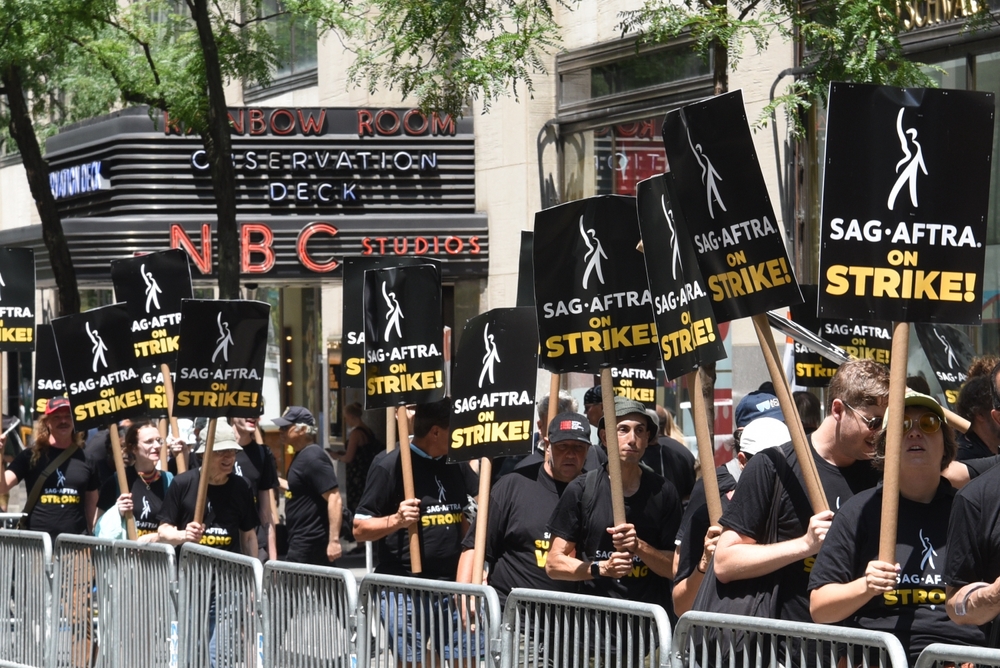Despite recent progress in the SAG-AFTRA strike negotiations, many issues remain unresolved, according to Duncan Crabtree-Ireland, the union’s chief negotiator.
While being interviewed at a picket outside Disney’s studio premises, he expressed uncertainty about the strike’s end date, emphasizing that it would depend on the attitudes and approaches of all parties involved.
“I think that depends on the mindset that everybody brings to the table this week,” he remarked.
“I certainly hope we can move things forward quickly, but there are important issues that are still open, and until they’re done, there’s no deal.”
Communications between SAG-AFTRA and the Alliance of Motion Picture and Television Producers (AMPTP) took place over the weekend, with plans for further discussions on Monday.
The Writer’s Guild of America (WGA) reached an agreement with the AMPTP in late September, securing protection for writers from tools like ChatGPT. The deal lasts three years.
Speaking of the SAG-AFTRA strike, Crabtree-Ireland said, “There has been progress, and that’s the source of my continued cautious optimism.”
One of the main sticking points in the negotiations is the topic of AI. The union is pushing for clear limitations on the use of AI in recreating performers’ digital likenesses, demanding consent and establishing a minimum compensation threshold.
Actors are worried that AI will copy and replace them, enabling studios to deploy deep fakes rather than employing real people.
Furthermore, the union aims to restrict AI consent to individual projects, counteracting studios’ preference for multi-project consents within specific franchises. In other words, actors want maximal control over permission for studios to use their AI copies.
“There are a number of big issues within the AI bucket that we’re currently working on,” Crabtree-Ireland noted. He continued, “It’s not only AI that’s left on the table. There are other big issues that we are still working on.”
He chose not to divulge extensive details on other negotiation points, such as the union’s demand for a share of streaming platforms’ revenue. Earlier in October, studios proposed a bonus model inspired by the WGA deal, rewarding the most popular made-for-streaming content.
The strike has now reached its 109th day, and the pressure for it to end is mounting. After all, striking means no pay for many actors, and not everyone in the US film industry is a Hollywood A-lister.
“I definitely feel that pressure — it’s why I feel such a sense of urgency to get things done,” Crabtree-Ireland admitted.





